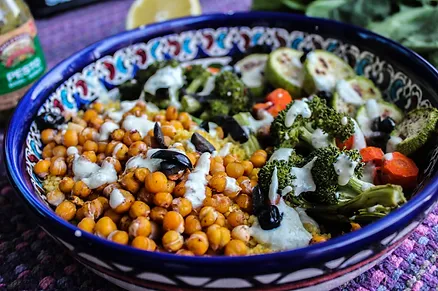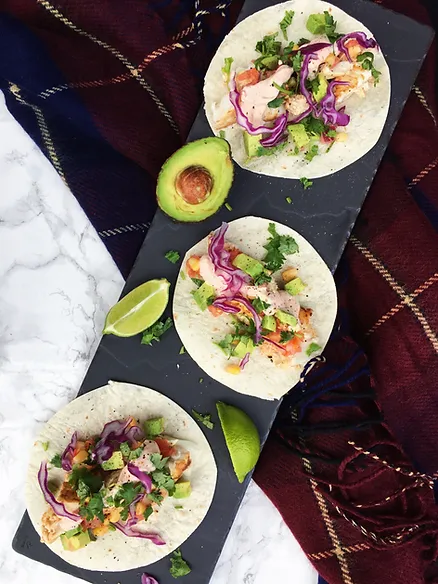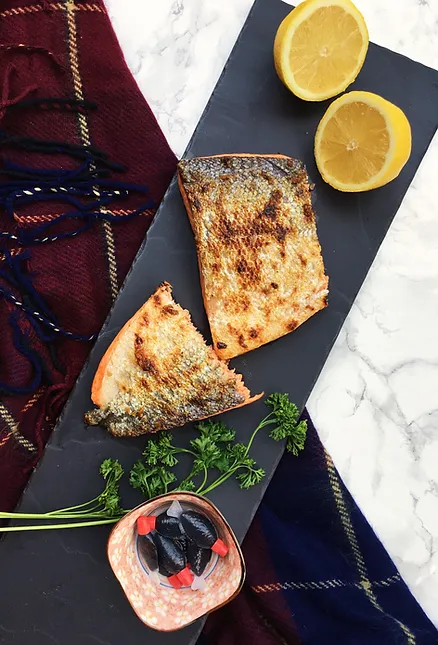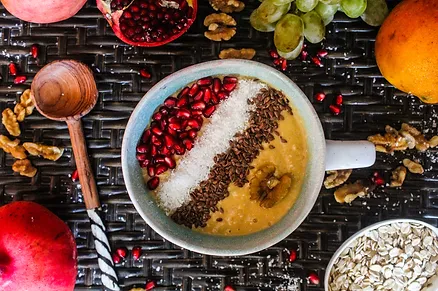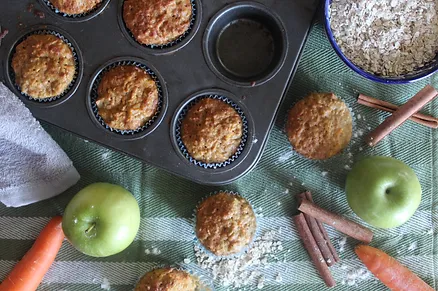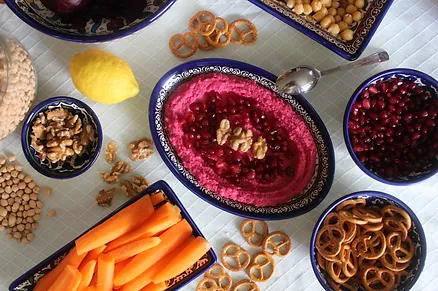How to Break Up with Diet Culture in 2020
Updated: Dec 28, 2019
The new year is coming, and with it often comes New Year’s resolutions. Many people will make their New Year’s resolutions about changing their body shape or size. These types of resolutions can lead to weight cycling, yo-yo dieting, disordered eating, and overall poorer health and well-being – not to mention feeling frustrated, disappointed, or even like a failure if you don’t reach your goals.
So why don’t we make 2020 the year you break up with diet culture?
Try these steps…
1. Ditch the scale.
How often do you get on the scale? Why? How does it make you feel? When you get on the scale, do you feel empowered, worthy, and motivated or do you feel defeated, insecure, and frustrated? The numbers on the scale only tell you about your relationship with gravity – not about your health, worth, or value. If weighing yourself only brings you down, maybe 2020 is the year to get rid of the scale!
2. Change your feed.
As they say, beauty is a social construct. The diet, cosmetic, and fashion industries bombard us with marketing designed to make us believe we need to spend lots of money, time, and energy in order to match a certain ideal. But how boring would life be if we all were exactly the same?
Social media can be an incredibly powerful tool; you get to choose to follow accounts that make you feel accepted rather than accounts that make you feel worse. What you see regularly on social media is having a bigger impact on you than you may realize, try changing up your feed to see how it changes the way you see yourself. Think of your social media presence like a ‘vote’ and keep ‘voting’ for accounts that represent you or make you feel better about yourself! So hit the ‘unfollow’ button on accounts that don’t make you feel empowered and confident, and hit the ‘follow’ button on ones that do.
Here are some of our favourite social media accounts to break up your ‘perfect feed’ on Instagram (although there are many fantastic accounts, just keep looking until you find ones that help you!):
- @paulfishman
- @meg.boggs
- @louisegreen_bigfitgirl
- @thebirdspapaya
- @rawbeautytalks
- @bodyposipanda
- @theeverymanproject
- @i_weigh
- @yrfatfriend
- @beauty_redefined
- Click here to see a list of even more body positive accounts!
What if it is your family or friends’ accounts that are negatively impacting you? Sometimes, friends or family may be promoting diet culture on their own feed but you don’t want to unfollow them, this is where the ‘mute’ or ‘hide’ button comes in handy! So you can stay connected without seeing their posts daily on your feed.
3. Choose new goals.
Instead of making your New Year about dieting and weight loss, try making goals that revolve around your health and well-being instead. Focus on small, sustainable changes that you can make realistically to improve your health and well-being this New Year – we promise, small changes add up! Here are some examples of goals you can make:
- Sign up for a new exercise class, league, or club that you’ll enjoy (e.g. sign up for that dance class you’ve had your eye on, or join a recreational baseball league, or join a running club in your neighbourhood).
- Try new recipes or unfamiliar foods (e.g. try cooking with tofu if that’s always intimidated you, or pick an unfamiliar fruit or vegetable at the grocery store every week, or try 4 new recipes a month!)
- Drink more water (e.g. have a water bottle in at home/in your car/at work that you can reach for instead of pop, juice, or other sugar-sweetened beverage)
- Schedule in some YOU time (e.g. set a date with yourself to relax and practice some self-care, or try meditation, or go to therapy)
- Prioritize your sleep (e.g. go to bed 30 minutes earlier or turn off all screens 60 minutes before bed)
4. Set boundaries with others – and even with yourself!
Diet culture is so insidious and pervasive, you may find yourself in conversations around dieting and weight loss with coworkers, friends, and even family. Make 2020 about setting polite but firm boundaries with those around you, and even with your inner voice, that you don’t want to spend any more time and energy engaging in diet culture. We love this post by Your Fat Friend, “27 Responses to (Never-Ending) Diet Talk” which has some great prompts to help you disengage from these conversations. Or you can direct your friends and family to our blog post “5 Reasons Not to Comment on Someone’s Weight this Holiday Season (or ever!)“.
5. Identify what the underlying reasons are behind your desire to lose weight.
Are you hoping it will make you feel more confident and secure? Do you think losing weight will improve your blood work or reduce your medication? Are you hoping to reduce your risk for illness or disease? Are you waiting to take that beach vacation until you reach a certain weight? Are you hoping to increase your fitness? Have you been holding on to old clothes from years ago that you want to fit into once again?
Once you’ve identified your reasons, work on them! Losing weight is not the key to happiness or health, no matter how much diet culture wants you to believe otherwise. Work with a therapist, dietitian, personal trainer, physician, physiotherapist, or other healthcare professional to work towards those goals, regardless of weight. Take that vacation, donate your old clothes, buy a great new wardrobe, and take back your power and control over your own life when you kick diet culture to the curb!
6. Work with a weight-inclusive team.
Your healthcare team should align with your values and goals, so don’t hesitate to express those to them. Tell your healthcare providers that you wish to focus on your health, rather than weight, and that if/when you would like to discuss weight again in the future you will let them know. Ask your healthcare providers what you can be doing to improve your health, regardless of weight, instead!
If your weight needs to be taken for medical purposes (e.g. for medication dosing), ask the practitioner to take a blind weight and not make any comments to you about it. You can do this by stepping on the scale backwards and/or having the clinician cover the number, ask them to not share the number with you or make any comments.

